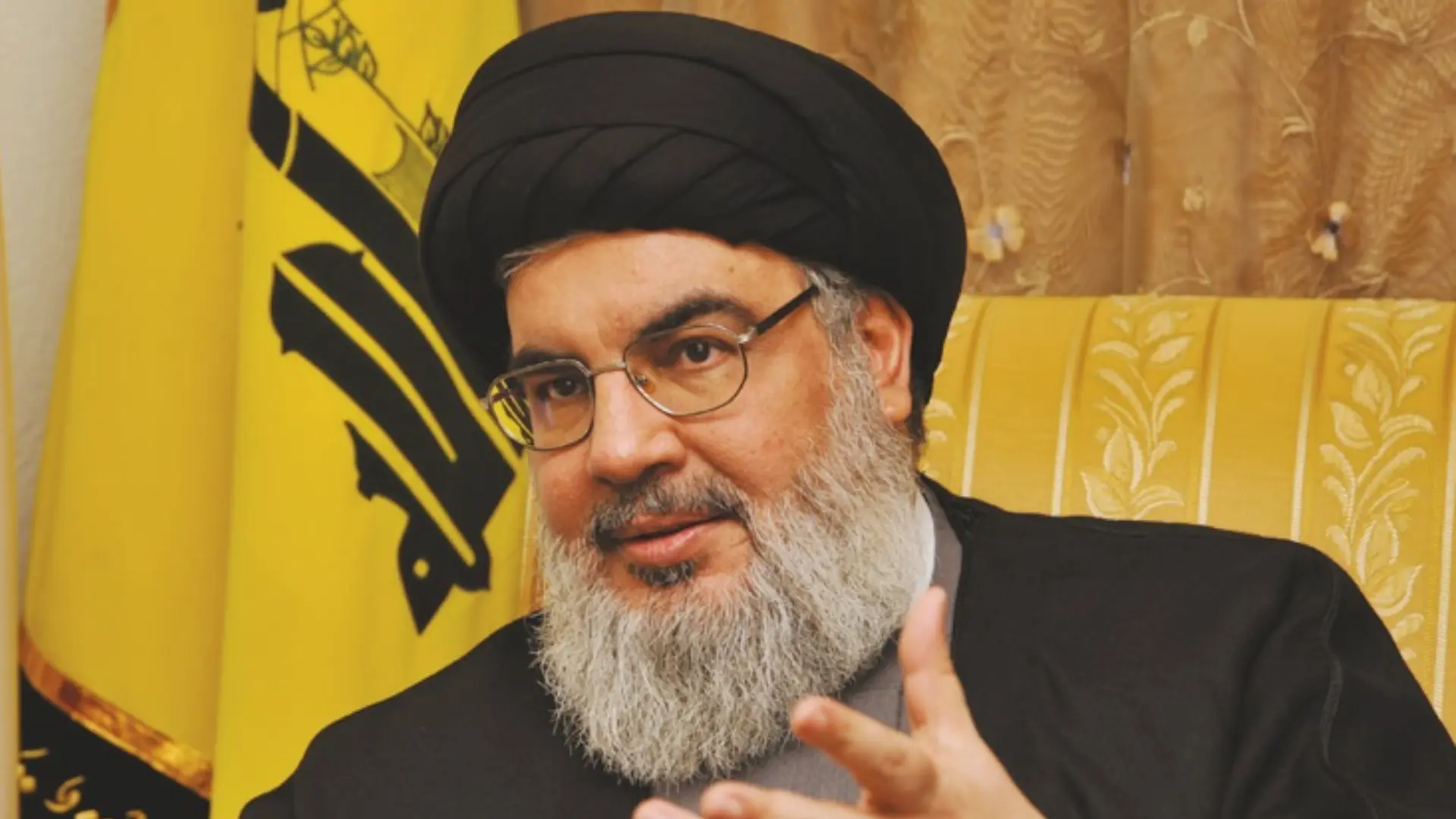On Saturday, Hezbollah officially confirmed the death of its leader, Sheikh Hassan Nasrallah, following an Israeli airstrike on Beirut. Israel’s military announced that the 64-year-old Nasrallah was killed during the attack, marking the end of the life of one of the most influential figures in the Middle East. Nasrallah had led Lebanon’s Shia Islamist movement for over three decades, shaping Hezbollah into a formidable political and military force.
A Shadowy Figure with Deep Ties to Iran
Nasrallah had not been seen in public for years, largely due to concerns over assassination threats from Israel. Despite his physical absence, his influence remained strong within Hezbollah and throughout the region. Under Nasrallah’s leadership, Hezbollah grew from a small militia into a powerful force that held substantial political sway in Lebanon and maintained close ties to Iran. Nasrallah’s close relationship with Tehran allowed Hezbollah to secure funding, weapons, and training, making it a key player in regional conflicts.
MUST READ: Saudi Arabia Announces Alliance To Advocate For Two-State Solution To Israeli-Palestinian Conflict
Israeli Military Confirms Targeting Hezbollah’s Leadership
Israeli military spokesperson Rear Admiral Daniel Hagari confirmed that Nasrallah’s death came as a result of an airstrike on Hezbollah’s headquarters in Beirut. The operation targeted what the Israeli military described as a “legitimate military target under international law.” The strike comes amidst heightened tensions between Israel and Hezbollah, with fighting escalating following sporadic clashes in recent months.
Nasrallah’s Role in Hezbollah’s Rise
Born in Beirut in 1960, Hassan Nasrallah’s early life was marked by Lebanon’s civil war. He joined the Shia militia Amal before breaking away to form what would later become Hezbollah. Nasrallah took control of the group in 1992 after his predecessor, Abbas al-Musawi, was killed by Israeli forces. His leadership was marked by the transformation of Hezbollah from a militia resisting Israeli occupation in southern Lebanon to a political force that provided social services, wielded significant power in Lebanese politics, and became a key actor in Iran’s ambitions for regional influence.
Shaped by Conflict: Hezbollah’s Struggle with Israel
Under Nasrallah’s command, Hezbollah launched numerous attacks against Israel, including a campaign in the 1990s that eventually led to the Israeli withdrawal from southern Lebanon in 2000. This withdrawal was hailed by Nasrallah as the “first Arab victory” against Israel, solidifying his status as a hero among many in the Arab world. However, Hezbollah’s military efforts did not cease. In 2006, Hezbollah’s cross-border raid, which led to the deaths of eight Israeli soldiers, triggered a massive response from Israel, resulting in a 34-day war. The conflict killed over 1,100 Lebanese and 164 Israelis, marking one of the bloodiest chapters in the Israel-Hezbollah rivalry.
Hezbollah’s Expanding Influence
Nasrallah’s leadership saw Hezbollah evolve into more than just a militia. The group expanded its influence by training fighters from Palestinian groups such as Hamas, militias in Iraq, and the Houthis in Yemen. Hezbollah also provided critical support to the Assad regime in Syria during the civil war, sending fighters to bolster the embattled Syrian president. “It is our battle, and we are up to it,” Nasrallah said, defending Hezbollah’s intervention in Syria, which drew both praise and criticism from different factions in Lebanon.
Nasrallah’s Final Years: Rising Tensions with Israel
In recent years, Nasrallah had overseen an increasingly aggressive Hezbollah stance towards Israel, particularly following the 2023 Hamas attack that sparked widespread conflict in Gaza. Hezbollah launched rocket attacks on northern Israel, a move Nasrallah described as “support” for Hamas and the Palestinians. As fighting intensified, Israel responded with heavy airstrikes on Hezbollah positions in Lebanon, leading to the deaths of hundreds of Lebanese civilians and Hezbollah fighters.
Hezbollah’s Future Without Nasrallah
With Nasrallah’s death, questions loom about Hezbollah’s future leadership. Analysts speculate that senior figure Hashem Safieddine may be poised to take the reins. However, the loss of Nasrallah, who had been at the helm for over 30 years, is likely to leave a significant void. His strategic thinking, close ties to Iran, and ability to navigate Lebanon’s complex political landscape will be hard to replace.
Global Reactions to Nasrallah’s Death
The death of Hassan Nasrallah has sent shockwaves through the region. Hamas, a close ally of Hezbollah, issued a statement mourning his loss and condemning the airstrike as a “cowardly terrorist act.” Hamas declared that the death of leaders like Nasrallah would only embolden the resistance. “History has proven that the resistance… whenever its leaders die as martyrs, will be succeeded on the same path by a generation of leaders who are more valiant, stronger, and more determined to continue the confrontation,” Hamas said in a statement.
Iran Mourns the Loss of a Close Ally
Iran, Hezbollah’s primary backer, declared five days of mourning for Nasrallah. Ayatollah Ali Khamenei, Iran’s Supreme Leader, called Nasrallah’s death a significant loss for the region’s resistance against Israel. Iran’s state media broadcast tributes to Nasrallah, honoring his role in bolstering the country’s regional ambitions and supporting the Palestinian cause.
As Lebanon grapples with the fallout of Nasrallah’s death, the country remains deeply divided. Sectarian tensions, an ongoing economic crisis, and the political vacuum left by Nasrallah’s death pose significant challenges. For years, Nasrallah balanced Hezbollah’s military activities with its role as a major player in Lebanese politics, but his death could destabilize the fragile political order.






















